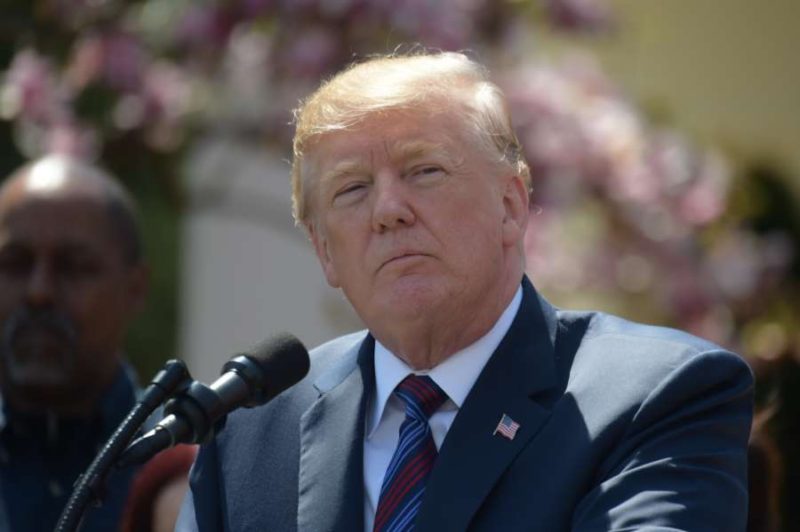The US midterm elections will be held on November 6. Many knowledgeable observers are calling these midterms the most important elections in a generation. That’s because, even though this is an off-year election in which there is no presidential contest, the election itself is a referendum on Donald Trump…reports Asian Lite News

President Trump’s aggressive and attacking leadership style and personality has taken a country that was already divided and driven the voters into polarised camps. He has consistently governed for and bonded with his Republican base and ignored and alienated those who vote Democratic.
Trump has intensified his polarising tactics in the run-up to election day through his comments nationally, as also in his campaigning for Republican candidates in states across the country. He has asked his ardent supporters to see each election as being about him. This has energised them and galvanised those voters who oppose him.
The battle lines have been drawn. The outcome will be determined on election day.
The basic outcome will be control of the US Congress which has two chambers: The House (which has 435 members distributed based upon the populations of the 50 states) and the Senate (which has two members per state). Currently, the Republicans have a majority in both the House and the Senate.
The much more important outcome will be what the results will mean for US governmental policy and practices. No matter how Congress splits, the President’s approach to foreign policy and international relations will remain nationalistic and isolationist, with the most visible impact in India being in areas such as trade, treaties and immigration.
The largest impact in the US itself will be in Congressional support for, or in resistance to, moving forward President Trump’s agenda.
That agenda has included tax cuts providing nominal benefits to the average citizen and substantial benefits to the wealthy and large corporations, and the dismantling of Obamacare — the programme that was designed to provide reasonably-priced health-care coverage for all Americans.
Trump’s agenda has also featured downsizing and radically changing the focus of domestic agencies that Democrats value highly such as the Departments of Education, Interior, Labour, Housing and Urban Development and the Environmental Protection Agency.
From a purely legislative standpoint, it doesn’t matter much whether the Republicans retain control of both chambers of Congress, the control is split, or the Democrats gain control. The reason is that, for nearly a decade, Congress has been suffering from congressional dysfunction. There has been little across-the-aisle compromise and not much legislation has been passed.
Where the control will matter is in terms of support for the President’s agenda. After the election, President Trump will continue to govern, as he has primarily to this point, through executive order. A Republican majority in both chambers will aid and abet those orders and might occasionally pass legislation related to them. Split control would mean endless battles, with one chamber blocking or reversing the actions of the other.
The most intriguing possibility is Democratic control of both chambers which would undoubtedly produce, among other things, attempts to curb Trump’s immigration proposals and to reverse his Obamacare interventions. And, depending on what Special Counsel Robert Mueller finds, might even lead to articles of impeachment.
In sum, the US mid-term elections matter not because they will bring about dramatic changes in law-making but because changes in the law-makers will influence the tone and tenor of our national dialogue and the attitudes of the American public.
The United States of America is at a pivot point. Continued Republican control will reinforce and extend the current darkness, fear and withdrawal from the world stage. Split or Democratic control will signal the potential for sunlight, hope, optimism and a recommitment to international leadership.
Which will it be? At this point, a few days before the election is held, the most likely possibility appears to be split control of Congress with the Republicans retaining the majority in the Senate and the Democrats gaining a majority in the House. Fivethirtyeight, a research firm that does projections employing its statistical analysis of the findings of several polling organisations, gave the Democrats a 6 in 7 chance of winning control of the House and the Republicans a 6 in 7 chance of keeping control of the Senate.
That is no guarantee, however. Polls do not vote, people do. They will do so on November 6. The citizens of the US, India and the world will know the actual results then. After that, there will be no more conjecture, just the consequences.








